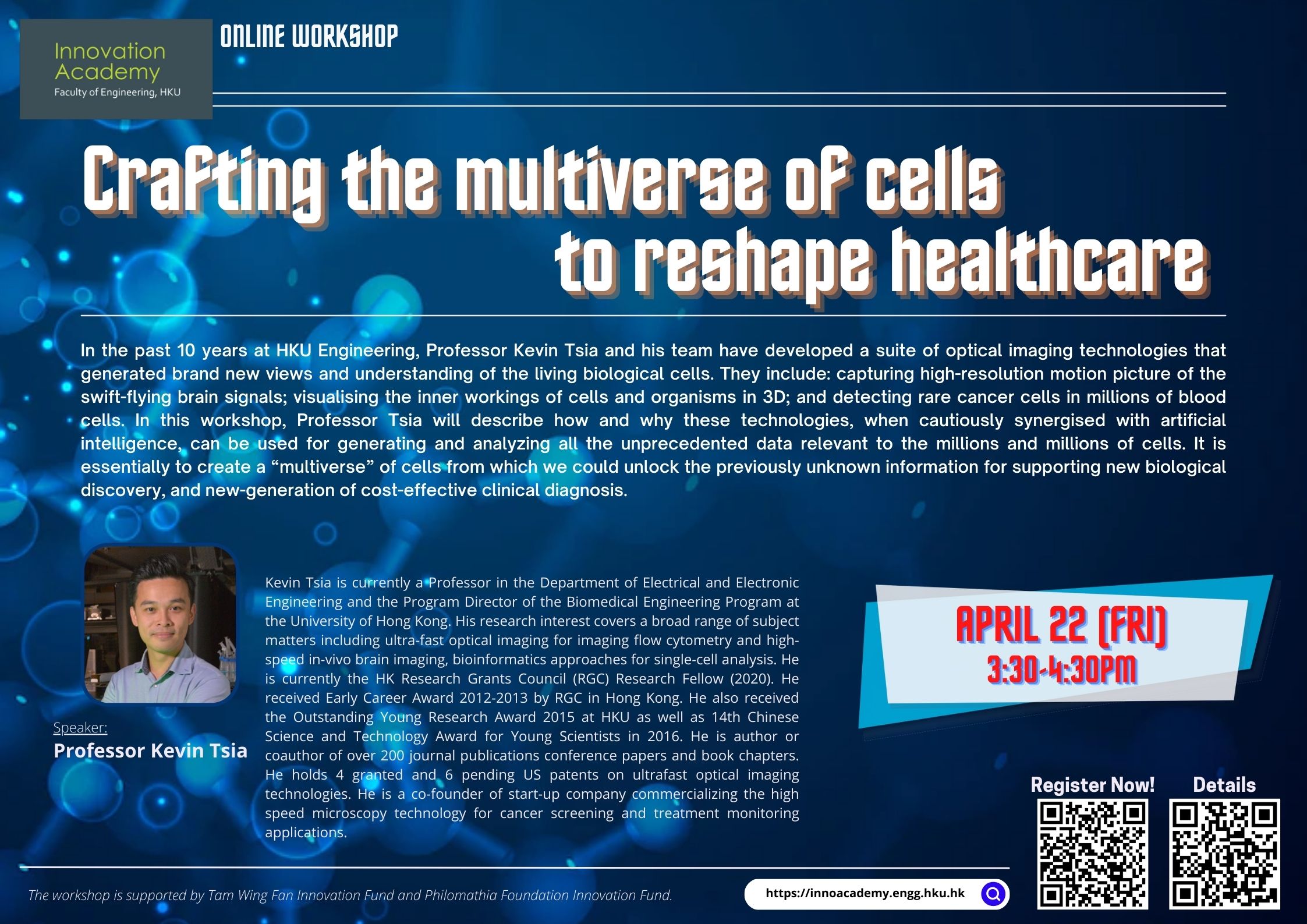Online Workshop: Professor Kevin Tsia “Crafting the multiverse of cells to reshape healthcare” (April 22, 2022 (Friday))

In the past 10 years at HKU Engineering, Professor Kevin Tsia and his team have developed a suite of optical imaging technologies that generated brand new views and understanding of the living biological cells. They include: capturing high-resolution motion picture of the swift-flying brain signals; visualising the inner workings of cells and organisms in 3D; and detecting rare cancer cells in millions of blood cells. In this workshop, Professor Tsia will describe how and why these technologies, when cautiously synergised with artificial intelligence, can be used for generating and analyzing all the unprecedented data relevant to the millions and millions of cells. It is essentially to create a “multiverse” of cells from which we could unlock the previously unknown information for supporting new biological discovery, and new-generation of cost-effective clinical diagnosis.
Date: April 22, 2022 (Friday)
Time: 3:30-4:30pm
Speaker: Professor Kevin Tsia, Professor, Department of Electrical & Electronic Engineering, and Program Director of Biomedical Engineering Program, Faculty of Engineering, HKU
Mode: Zoom
About the speaker:
Kevin Tsia is currently a Professor in the Department of Electrical and Electronic Engineering and the Program Director of the Biomedical Engineering Program at The University of Hong Kong. His research interest covers a broad range of subject matters including ultra-fast optical imaging for imaging flow cytometry and high-speed in-vivo brain imaging, bioinformatics approaches for single-cell analysis. He is currently the HK Research Grants Council (RGC) Research Fellow (2020). He received Early Career Award 2012-2013 by RGC in Hong Kong. He also received the Outstanding Young Research Award 2015 at HKU as well as 14th Chinese Science and Technology Award for Young Scientists in 2016. He is author or coauthor of over 200 journal publications conference papers and book chapters. He holds 4 granted and 6 pending US patents on ultrafast optical imaging technologies. He is a co-founder of start-up company commercializing the high speed microscopy technology for cancer screening and treatment monitoring applications.
